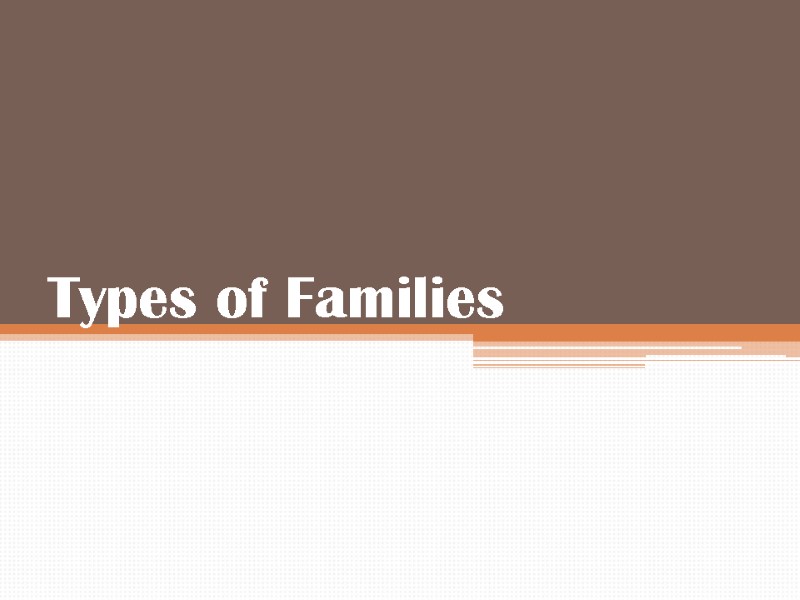 Types of Families
Types of Families
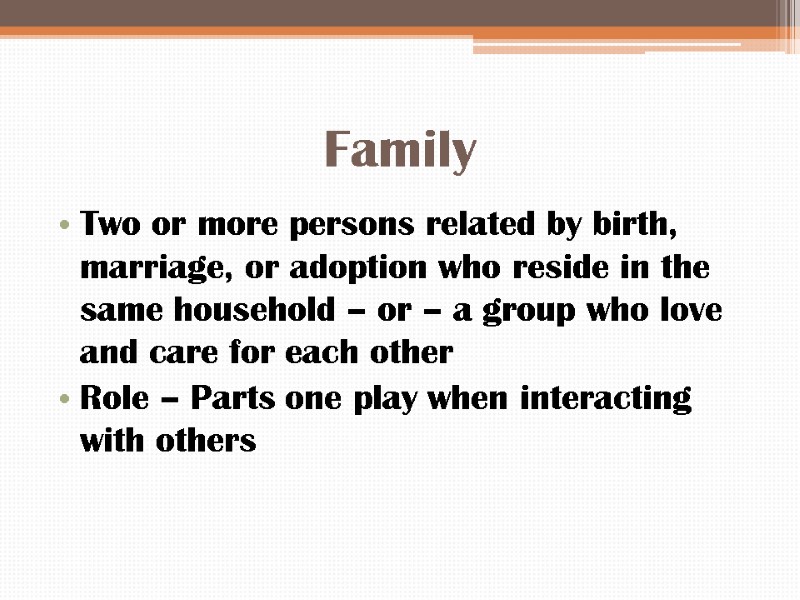 Family Two or more persons related by birth, marriage, or adoption who reside in the same household – or – a group who love and care for each other Role – Parts one play when interacting with others
Family Two or more persons related by birth, marriage, or adoption who reside in the same household – or – a group who love and care for each other Role – Parts one play when interacting with others
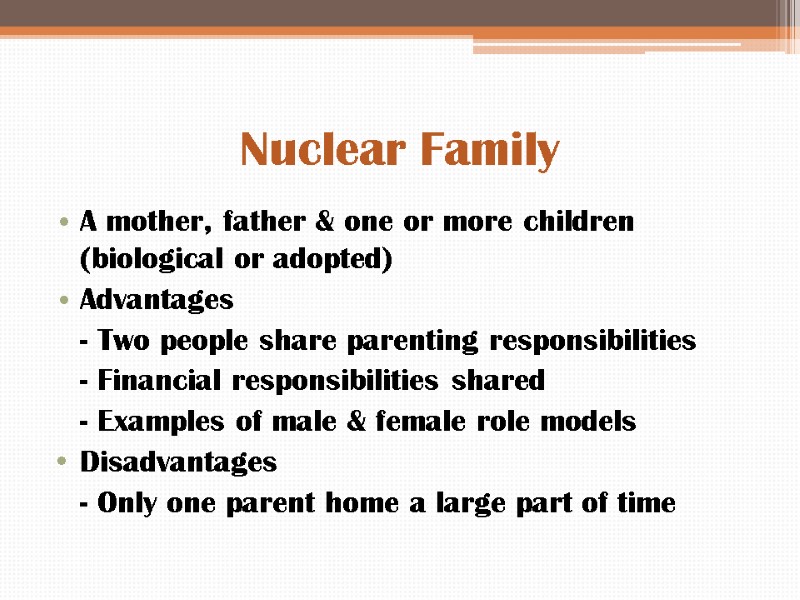 Nuclear Family A mother, father & one or more children (biological or adopted) Advantages - Two people share parenting responsibilities - Financial responsibilities shared - Examples of male & female role models Disadvantages - Only one parent home a large part of time
Nuclear Family A mother, father & one or more children (biological or adopted) Advantages - Two people share parenting responsibilities - Financial responsibilities shared - Examples of male & female role models Disadvantages - Only one parent home a large part of time
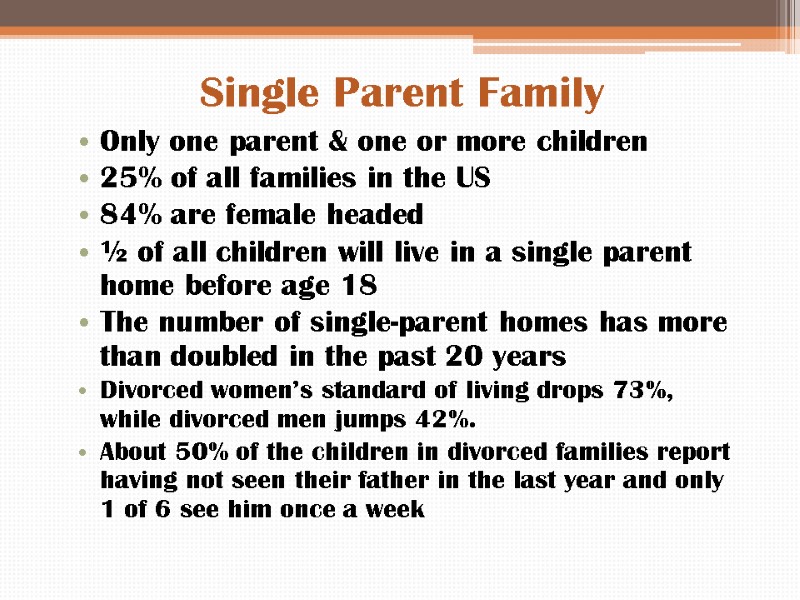 Single Parent Family Only one parent & one or more children 25% of all families in the US 84% are female headed ½ of all children will live in a single parent home before age 18 The number of single-parent homes has more than doubled in the past 20 years Divorced women’s standard of living drops 73%, while divorced men jumps 42%. About 50% of the children in divorced families report having not seen their father in the last year and only 1 of 6 see him once a week
Single Parent Family Only one parent & one or more children 25% of all families in the US 84% are female headed ½ of all children will live in a single parent home before age 18 The number of single-parent homes has more than doubled in the past 20 years Divorced women’s standard of living drops 73%, while divorced men jumps 42%. About 50% of the children in divorced families report having not seen their father in the last year and only 1 of 6 see him once a week
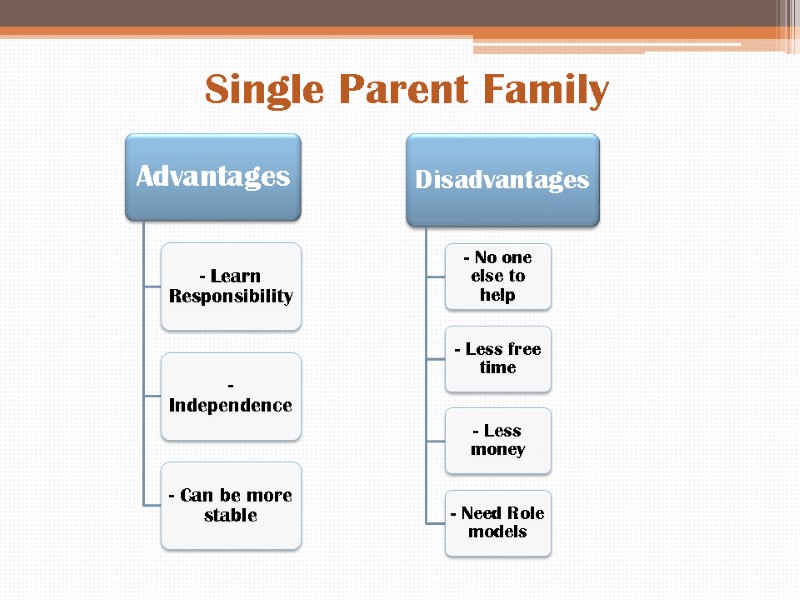 Single Parent Family
Single Parent Family
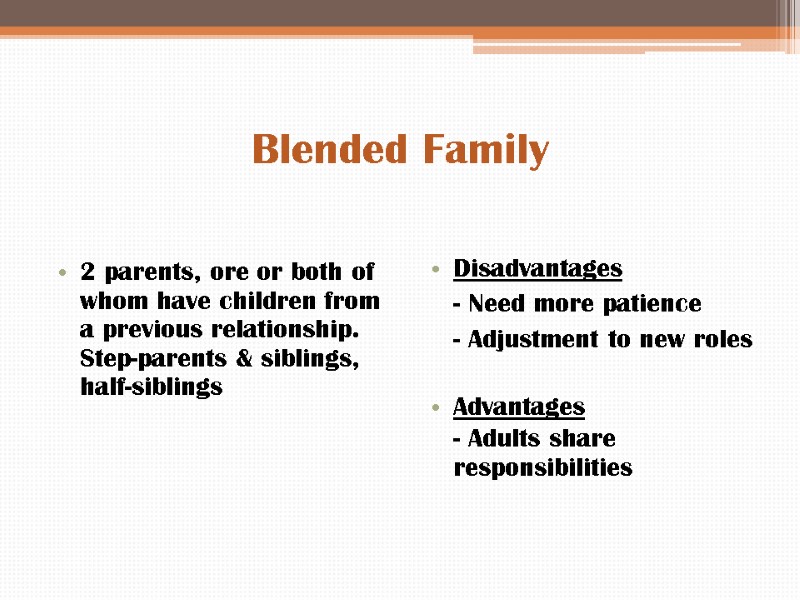 Blended Family 2 parents, ore or both of whom have children from a previous relationship. Step-parents & siblings, half-siblings Disadvantages - Need more patience - Adjustment to new roles Advantages - Adults share responsibilities
Blended Family 2 parents, ore or both of whom have children from a previous relationship. Step-parents & siblings, half-siblings Disadvantages - Need more patience - Adjustment to new roles Advantages - Adults share responsibilities
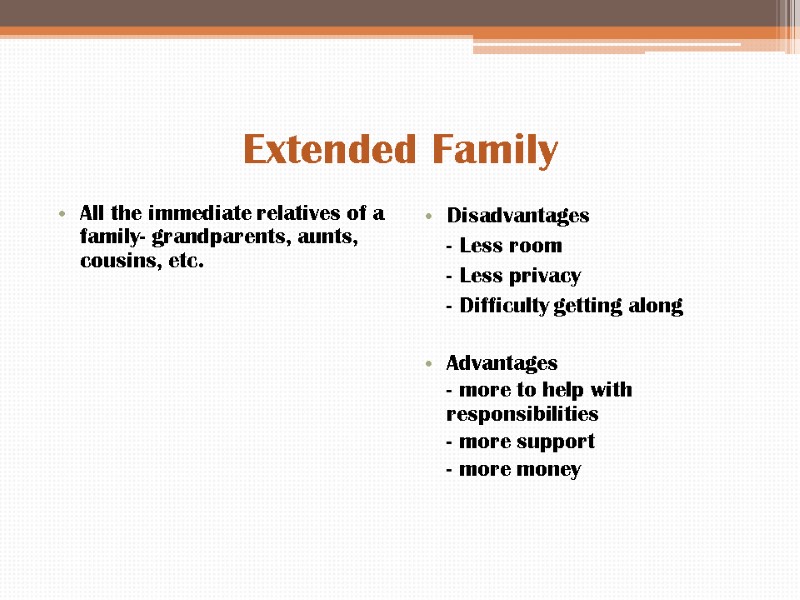 Extended Family All the immediate relatives of a family- grandparents, aunts, cousins, etc. Disadvantages - Less room - Less privacy - Difficulty getting along Advantages - more to help with responsibilities - more support - more money
Extended Family All the immediate relatives of a family- grandparents, aunts, cousins, etc. Disadvantages - Less room - Less privacy - Difficulty getting along Advantages - more to help with responsibilities - more support - more money
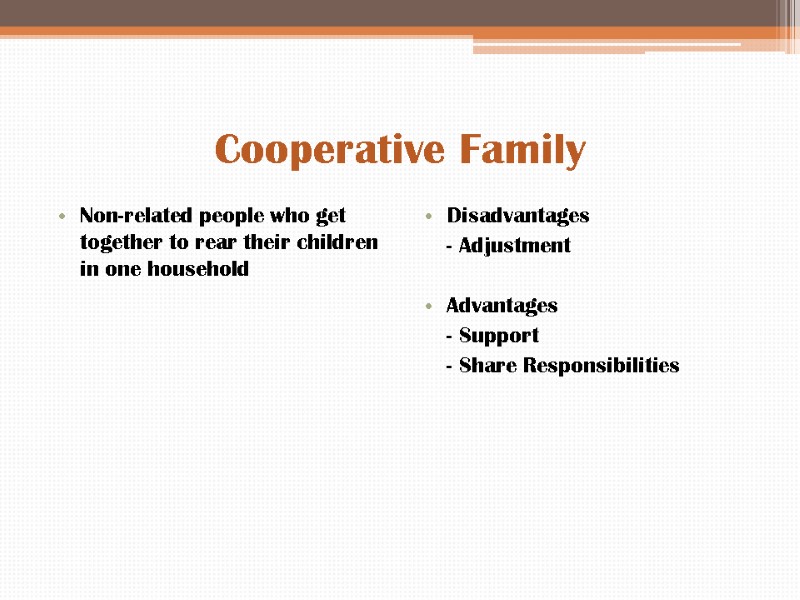 Cooperative Family Non-related people who get together to rear their children in one household Disadvantages - Adjustment Advantages - Support - Share Responsibilities
Cooperative Family Non-related people who get together to rear their children in one household Disadvantages - Adjustment Advantages - Support - Share Responsibilities
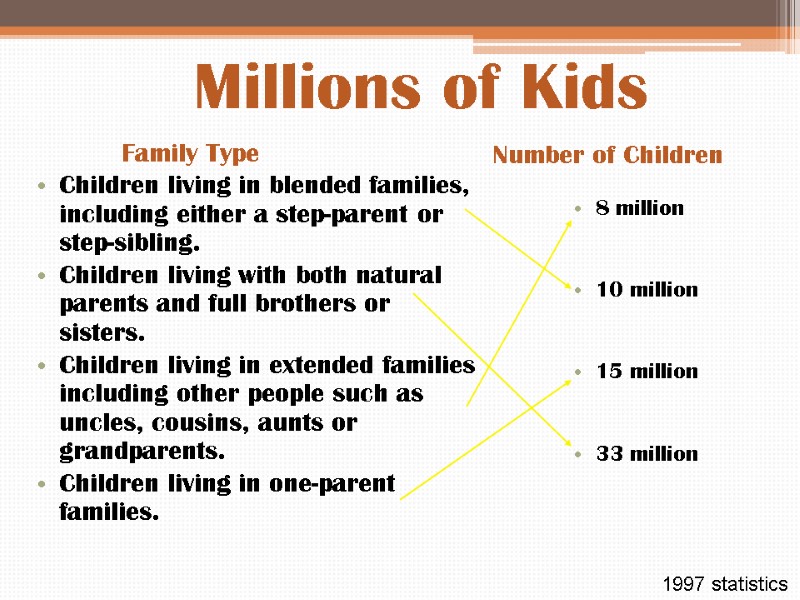 Millions of Kids Children living in blended families, including either a step-parent or step-sibling. Children living with both natural parents and full brothers or sisters. Children living in extended families including other people such as uncles, cousins, aunts or grandparents. Children living in one-parent families. 8 million 10 million 15 million 33 million Family Type Number of Children 1997 statistics
Millions of Kids Children living in blended families, including either a step-parent or step-sibling. Children living with both natural parents and full brothers or sisters. Children living in extended families including other people such as uncles, cousins, aunts or grandparents. Children living in one-parent families. 8 million 10 million 15 million 33 million Family Type Number of Children 1997 statistics
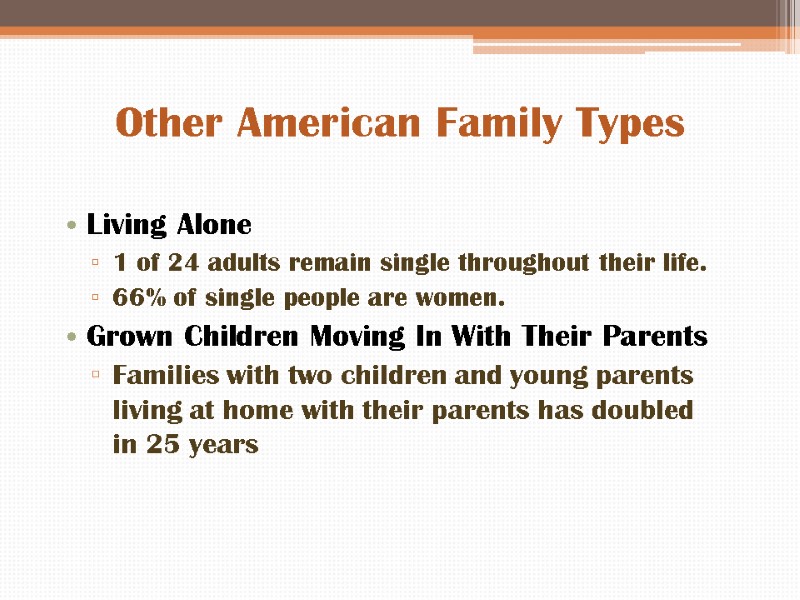 Other American Family Types Living Alone 1 of 24 adults remain single throughout their life. 66% of single people are women. Grown Children Moving In With Their Parents Families with two children and young parents living at home with their parents has doubled in 25 years
Other American Family Types Living Alone 1 of 24 adults remain single throughout their life. 66% of single people are women. Grown Children Moving In With Their Parents Families with two children and young parents living at home with their parents has doubled in 25 years
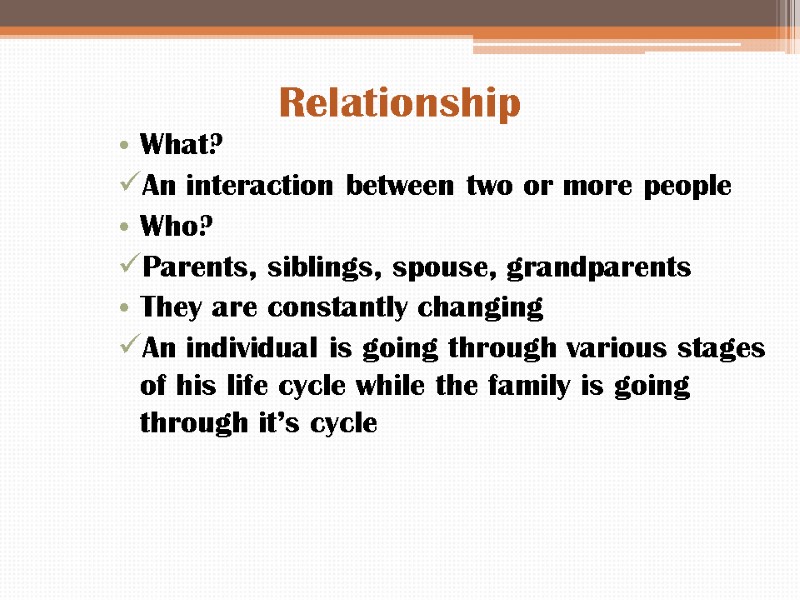 Relationship What? An interaction between two or more people Who? Parents, siblings, spouse, grandparents They are constantly changing An individual is going through various stages of his life cycle while the family is going through it’s cycle
Relationship What? An interaction between two or more people Who? Parents, siblings, spouse, grandparents They are constantly changing An individual is going through various stages of his life cycle while the family is going through it’s cycle
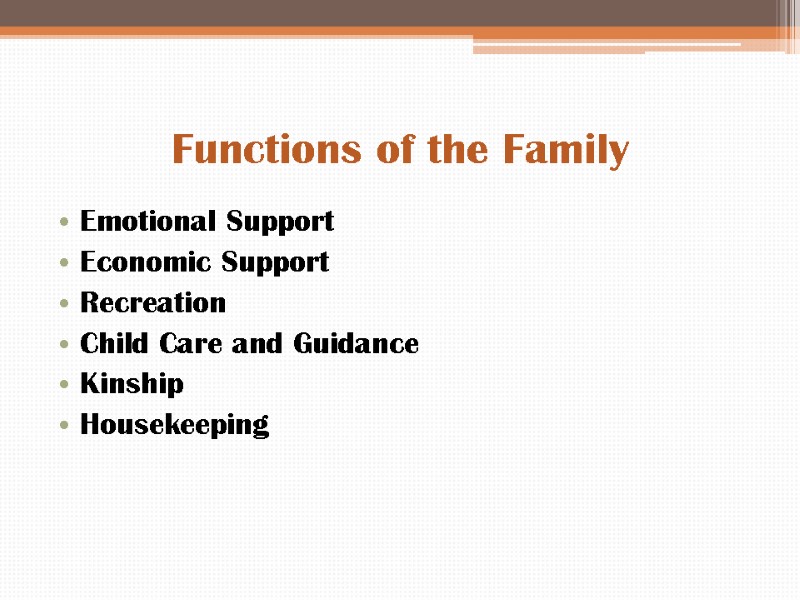 Functions of the Family Emotional Support Economic Support Recreation Child Care and Guidance Kinship Housekeeping
Functions of the Family Emotional Support Economic Support Recreation Child Care and Guidance Kinship Housekeeping
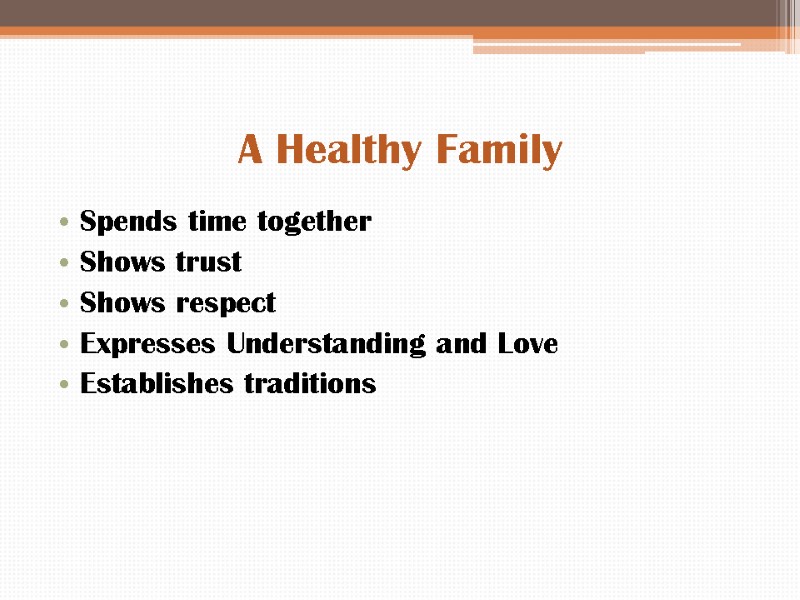 A Healthy Family Spends time together Shows trust Shows respect Expresses Understanding and Love Establishes traditions
A Healthy Family Spends time together Shows trust Shows respect Expresses Understanding and Love Establishes traditions



























